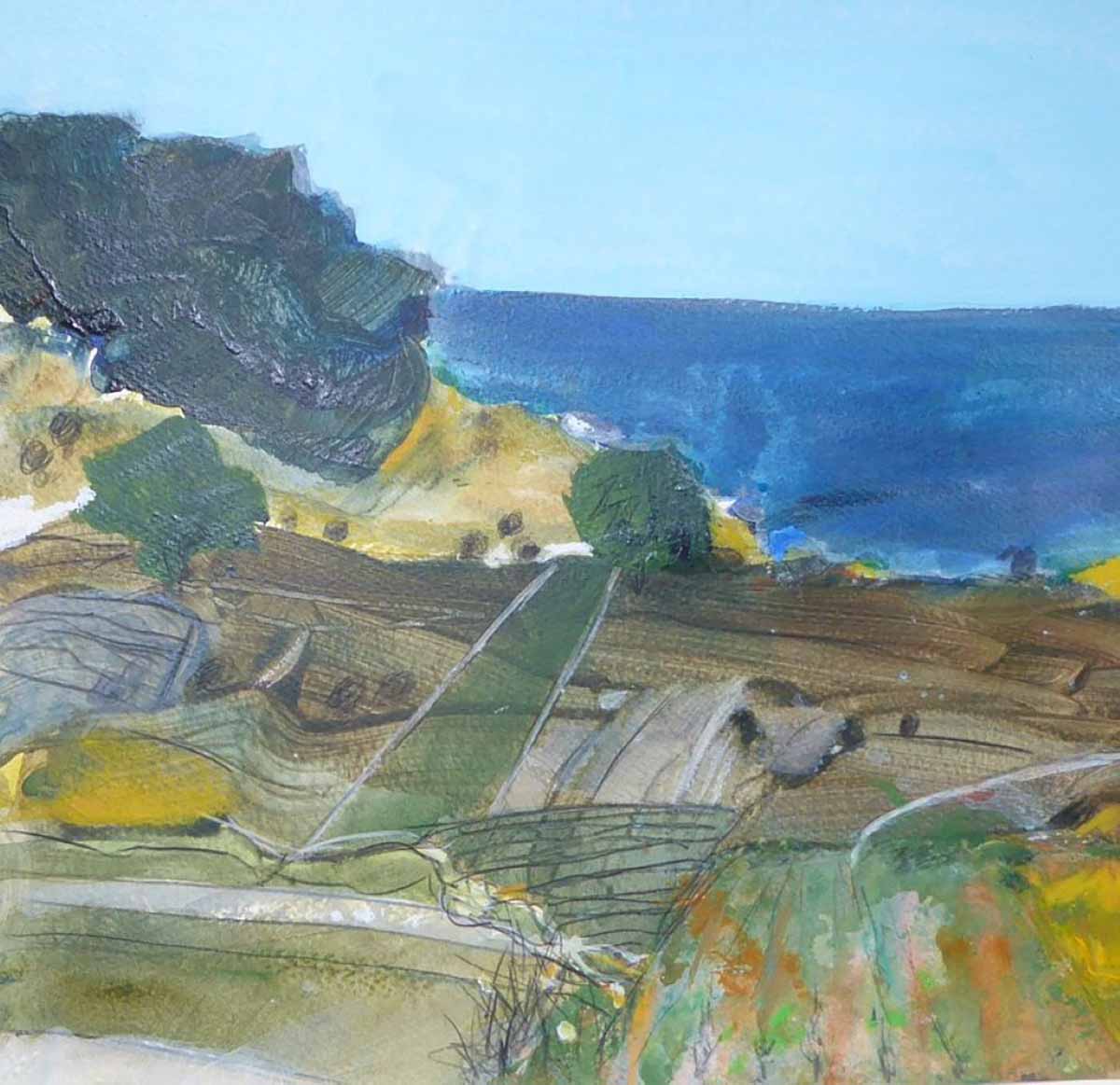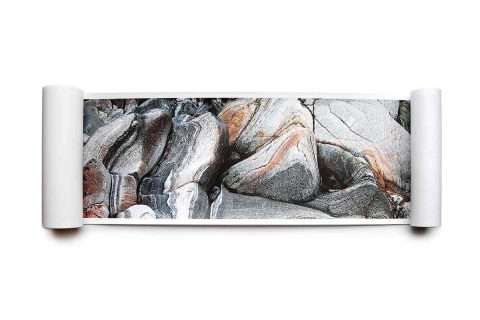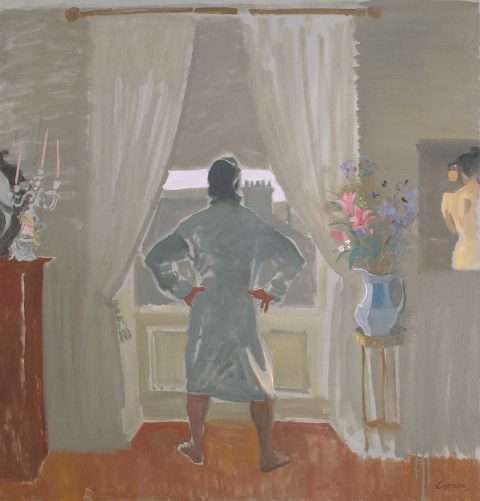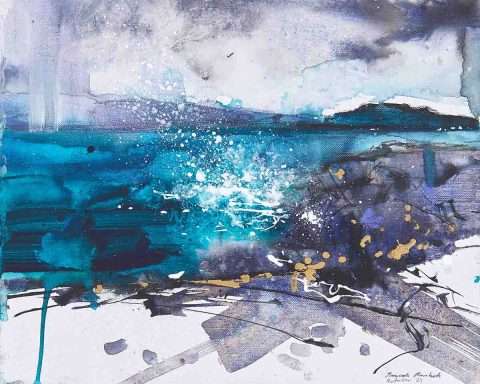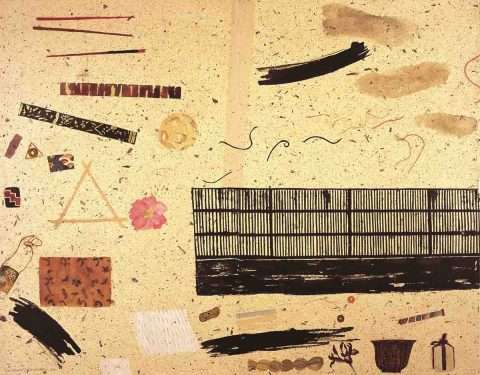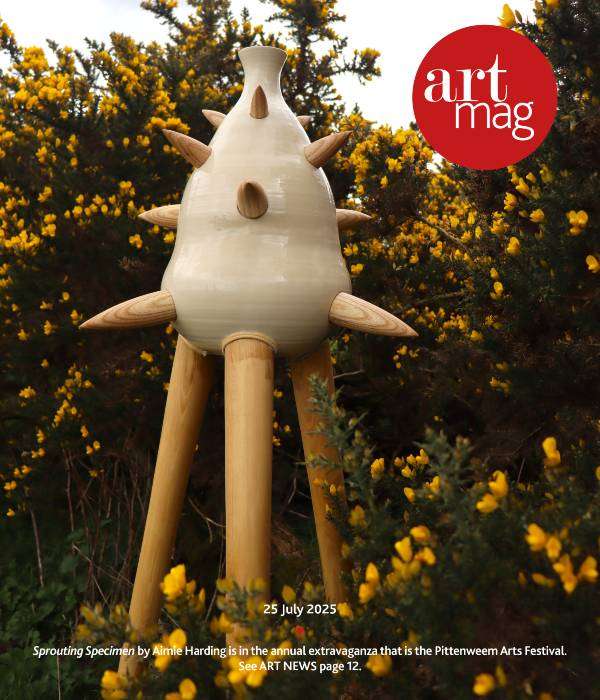‘The Scottish Borders, where I have lived for over forty years, is a constant inspiration whatever the season, providing many views, even from the garden. Frequent visits to Catalonia and the north of Spain, always stimulate many of the senses… a vineyard, olive grove or the brilliant blue Mediterranean’. – Douglas Davies RSW
Around the Dundas Street Gallery, Douglas Davies presents a painterly theme of Favourite Places at home and away, to share his personal journey through tranquil locations which have shaped his artistic creativity.
As well as an accomplished watercolourist, the medium in this collection is acrylic, often blended with pastel and pencil. A recurring focus is the shifting quality of light, as observed in The Duck Pond, with a vibrant lemon sky bathing the curving contours of hills, woodland, meadow and pond in a pale golden glow.

From the summit of Tinto Hill, near Biggar, one can occasionally see as far as the Lake District, the mountains of Mourne in Northern Ireland, Ailsa Craig, Arran and Lochnagar in the Cairngorms. With a swirl of rose-peach tinted clouds, this may be the twilight hour over Tinto.

In the summer of 1905, Henri Matisse and André Derain painted together in Collioure in southern France, their collaboration becoming the springboard for the Fauvist movement. Twenty years later, Charles Rennie Mackintosh and his wife Margaret visited this French Catalan coastline on holiday, but loved it so much they decided to settle here, ‘in this lovely rose-coloured land… with its warmth and its sun.‘
In 2007 Douglas Davies was awarded a prestigious placement at the first Charles Rennie Mackintosh Residency at Collioure, to experiment and explore a new creative direction in this painters’ paradise. Nearby, Anse de Paulilles is a peaceful place of natural heritage, with a pure clarity of light glistening over the azure sea.

‘My work starts with on-the-spot sketches which are then translated into a painting in the studio – allowing the colour, line, texture, trial and error to develop the emerging composition. Not so different to a composer or writer.‘ Douglas Davies, RSW
A climate of warm sunshine and rich soil is required to produce the region’s fine wines, as illustrated in the patchwork palette of emerald green, terracotta and ochre in Spring Vineyards.

Davies studied Ceramics and Glass Design at Edinburgh College of Art, and perhaps it’s this decorative skill which is translated in the controlled use of line and shape with crisp tone and texture. Rather than dramatic vistas, he experiments in depicting subtle elements: the shimmering glare of Mediterranean sun, a slant of winter light over frosty fields and a hazy mist like a lacy veil in Grasses, with a delicate touch.

Here too are several botanical studies such as White Anemones, a flowering plant of the buttercup family, also called windflowers; the soft petals and glossy leaves are effectively depicted with dabs of impressionistic painterly marks.

In the intense heat of South of France, the sweeping, parched terrain of Catalan Hillside, under a slither of sky, resonates with a tangible stillness through a sensitive distillation of atmosphere, light, time and mood.

Douglas Davies takes us on a meditative journey through these still, silent, timeless landscapes of natural beauty and decorative floral studies, in quietly impressionistic scenes. ‘Favourite Places’ are not just sketchily observed – they are places and moments felt, remembered and rendered with emotional introspection.
With thanks to Vivien Devlin for this review.

